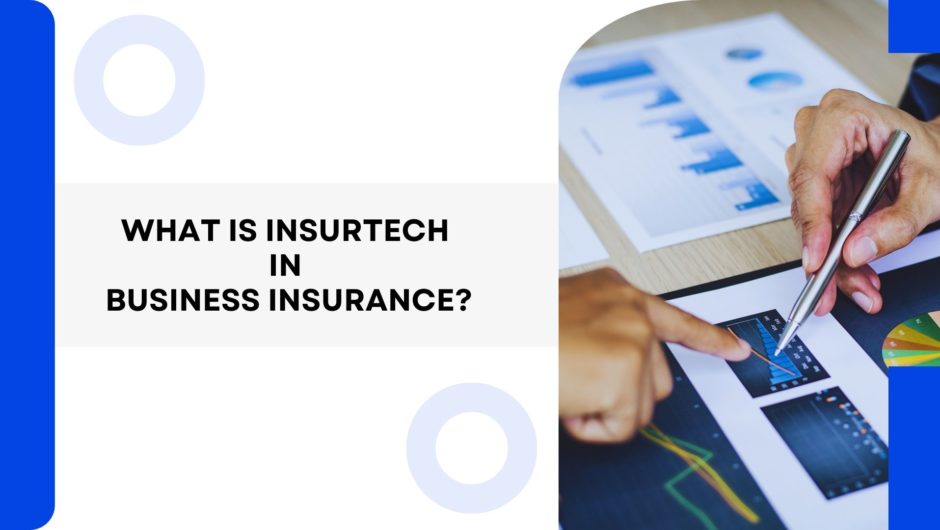Artificial intelligence (AI) is catalyzing a paradigm shift in the financial services sector, heralding a new era of innovation and efficiency. With its ability to process vast amounts of data at lightning speed and uncover insights that were previously inaccessible, AI is transforming various facets of finance. From predictive analytics for risk management to personalized recommendations for clients, AI is reshaping how financial institutions operate, enhancing decision-making processes, and revolutionizing customer experiences. As AI continues to evolve and mature, its integration into financial services promises to unlock unprecedented opportunities for growth, optimization, and disruption in the industry.

7 Ways Artificial Intelligence is Revolutionizing Financial Services are:
1. Predictive Analytics
Predictive analytics in financial services leverages advanced algorithms and machine learning techniques to analyze historical data and predict future outcomes. By examining patterns, trends, and correlations within vast datasets, predictive analytics enables financial institutions to forecast customer behavior, market trends, and investment opportunities with greater accuracy. In banking, predictive analytics is used for credit scoring to assess the creditworthiness of borrowers, identify potential default risks, and determine appropriate lending terms. Insurance companies employ predictive analytics to evaluate risk profiles, set premiums, and detect fraudulent claims. Moreover, investment firms utilize predictive analytics to optimize portfolio management, identify profitable trading opportunities, and mitigate market risks.
One of the key benefits of predictive analytics is its ability to enhance decision-making processes by providing actionable insights and reducing uncertainty. By leveraging predictive models, financial institutions can make more informed decisions regarding resource allocation, investment strategies, and risk mitigation measures. Additionally, predictive analytics enables proactive customer engagement through personalized product recommendations, targeted marketing campaigns, and tailored financial advice.
2. Fraud Detection
Fraud detection involves the use of sophisticated algorithms and machine learning techniques to identify and prevent fraudulent activities in real-time. By analyzing vast amounts of transactional data and user behavior patterns, fraud detection systems can detect anomalies, unusual patterns, and suspicious activities that may indicate fraudulent behavior. These systems employ a variety of methods, including anomaly detection, pattern recognition, and predictive modeling, to continuously monitor transactions and identify potential fraud risks.
One of the primary benefits of fraud detection systems is their ability to prevent financial losses by identifying fraudulent transactions before they are completed. By leveraging advanced analytics and artificial intelligence, these systems can quickly identify and flag suspicious activities, allowing financial institutions to take immediate action to mitigate risks and prevent losses. Additionally, fraud detection systems help enhance customer trust and loyalty by providing a secure and reliable payment environment. By detecting and reporting suspicious activities, these systems help financial institutions comply with regulatory requirements and mitigate legal and reputational risks.
3. Customer Service Automation
Customer service automation refers to the use of technology, particularly artificial intelligence (AI) and chatbots, to streamline and enhance customer support processes. These automated systems are designed to handle routine customer inquiries, provide quick responses to common questions, and resolve issues efficiently without the need for human intervention. By leveraging natural language processing (NLP) and machine learning algorithms, customer service automation systems can understand and interpret customer queries, identify relevant information, and provide accurate and personalized responses in real-time.
The key benefits of customer service automation is its ability to improve operational efficiency by reducing the workload on human customer service agents. By automating repetitive tasks and handling routine inquiries, these systems free up agents to focus on more complex and high-value interactions that require human expertise. Additionally, customer service automation enables businesses to provide 24/7 support, ensuring that customers can get assistance whenever they need it, regardless of time zones or business hours. These systems can also help businesses gather valuable insights into customer preferences, behavior patterns, and pain points by analyzing interaction data.
4. Risk Management
Risk management is a critical function in financial services, and artificial intelligence (AI) is playing an increasingly important role in enhancing risk management practices. AI-powered risk management systems leverage advanced algorithms and machine learning techniques to analyze vast amounts of data from various sources, including market data, transaction records, customer information, and external factors such as economic indicators and geopolitical events. By processing and interpreting this data in real-time, AI algorithms can identify potential risks, detect anomalies, and predict future trends with greater accuracy than traditional risk management methods.
Benefits of AI in risk management is its ability to improve risk assessment and mitigation strategies. AI algorithms can analyze historical data to identify patterns and trends that may indicate potential risks, allowing financial institutions to proactively address emerging threats and vulnerabilities. AI-powered risk management systems can provide more granular insights into specific risk factors and their potential impact on business operations, enabling organizations to make more informed decisions and allocate resources more effectively. AI can enhance fraud detection and prevention capabilities by flagging suspicious activities and transactions in real-time.
5. Algorithmic Trading
Algorithmic trading, also known as algo trading or automated trading, is the use of computer algorithms to execute trading strategies with speed and efficiency. These algorithms are programmed to follow predefined rules and parameters, allowing them to analyze market data, identify trading opportunities, and execute trades without human intervention. Algorithmic trading systems can process large volumes of data in real-time, including price movements, order book data, and news events, enabling traders to make split-second decisions and capitalize on market opportunities.
Traders can execute trades at optimal prices and quantities, reduce transaction costs, and minimize the impact of human emotions on trading decisions. Moreover, algorithmic trading strategies can be backtested using historical data to assess their performance and refine their parameters, allowing traders to continuously improve their trading strategies over time. Overall, algorithmic trading has revolutionized the financial markets by increasing liquidity, reducing trading costs, and enhancing market efficiency, while also presenting new challenges related to market manipulation and systemic risk that regulators must address.
6. Personalized Financial Advice
Personalized financial advice leverages artificial intelligence (AI) and machine learning algorithms to tailor recommendations to individual investors’ unique financial circumstances and goals. By analyzing vast amounts of data, including income, expenses, investment preferences, risk tolerance, and life stage, AI-driven platforms can provide personalized guidance on savings, budgeting, investing, and retirement planning. These platforms offer insights into optimizing portfolios, selecting suitable investment products, and managing risk effectively.
These AI-powered platforms empower individuals to make informed financial decisions aligned with their specific objectives, ultimately helping them achieve their long-term financial goals while also promoting financial literacy and inclusion. However, ensuring the accuracy and security of personal data and maintaining transparency in the advice-giving process are critical considerations in the development and deployment of personalized financial advice solutions. As technology continues to advance, personalized financial advice is poised to become increasingly sophisticated and accessible, revolutionizing the way individuals manage their finances and plan for the future.
7. Compliance and Regulatory Monitoring
Compliance and regulatory monitoring in the financial services industry have undergone a significant transformation with the integration of artificial intelligence (AI) technologies. AI-driven solutions enable financial institutions to efficiently navigate the complex landscape of regulatory requirements and ensure adherence to evolving compliance standards. These technologies utilize advanced algorithms to analyze vast amounts of data from various sources, including regulatory updates, legal documents, transaction records, and market data, to identify potential compliance risks and anomalies in real-time.
By automating processes such as monitoring transactions, detecting suspicious activities, and assessing regulatory changes, AI solutions enhance the effectiveness and accuracy of compliance efforts while reducing the burden of manual oversight. Moreover, AI-powered compliance systems can adapt to changes in regulations and compliance requirements more quickly and efficiently than traditional methods, enabling organizations to stay ahead of regulatory developments and mitigate compliance-related risks effectively. However, ensuring the ethical use of AI, maintaining data privacy and security, and addressing potential biases in algorithmic decision-making remain key considerations in the implementation of AI-driven compliance solutions.
Conclusion
In conclusion, artificial intelligence represents a transformative force in revolutionizing financial services. Its integration across various facets of the industry, from predictive analytics to risk management and compliance monitoring, has ushered in unprecedented levels of efficiency, accuracy, and innovation. By harnessing the power of AI, financial institutions can unlock actionable insights from vast datasets, enhance customer experiences through personalized services, and mitigate risks effectively. However, as AI continues to reshape the landscape of financial services, addressing ethical considerations, ensuring data privacy, and fostering trust remain imperative. Ultimately, AI-driven advancements have the potential to drive sustainable growth, foster greater financial inclusion, and shape the future of the industry.
Also Read:
- What is Dividend Investing and How to find Dividend Stocks?
- How do new mobile banking apps help access savings account better?
- Financial Advisor in India – The Best for your Financial Planning?
- What is inflation and how it impacts your financial plan?

Hello, I am Tanisha Kriplani, graduated in computer science from Delhi University. I am passionate about web content writing and have a strong interest in Data Analytics and Data Engineering.












